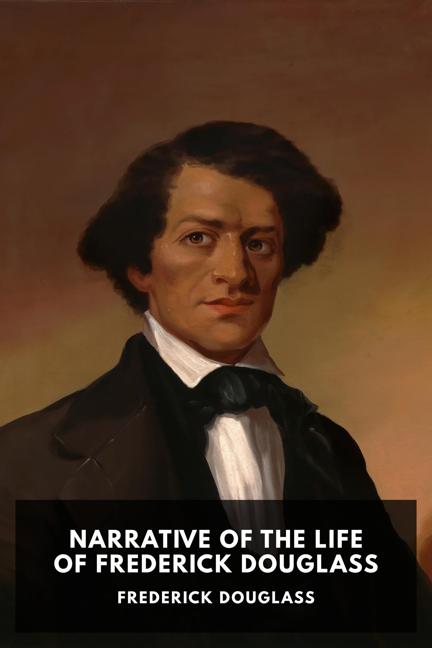Narrative of the Life of Frederick Douglass
4 stars
1) "A man must be disposed to judge of emancipation by other tests than whether it has increased the produce of sugar."
2) "I was born in Tuckahoe, near Hillsborough, and about twelve miles from Easton, in Talbot County, Maryland. I have no accurate knowledge of my age, never having seen any authentic record containing it."
3) "Whilst I was saddened by the thought of losing the aid of my kind mistress, I was gladdened by the invaluable instruction which, by the merest accident, I had gained from my master. Though conscious of the difficulty of learning without a teacher, I set out with high hope, and a fixed purpose, at whatever cost of trouble, to learn how to read. The very decided manner with which he spoke, and strove to impress his wife with the evil consequences of giving me instruction, served to convince me that he …
1) "A man must be disposed to judge of emancipation by other tests than whether it has increased the produce of sugar."
2) "I was born in Tuckahoe, near Hillsborough, and about twelve miles from Easton, in Talbot County, Maryland. I have no accurate knowledge of my age, never having seen any authentic record containing it."
3) "Whilst I was saddened by the thought of losing the aid of my kind mistress, I was gladdened by the invaluable instruction which, by the merest accident, I had gained from my master. Though conscious of the difficulty of learning without a teacher, I set out with high hope, and a fixed purpose, at whatever cost of trouble, to learn how to read. The very decided manner with which he spoke, and strove to impress his wife with the evil consequences of giving me instruction, served to convince me that he was deeply sensible of the truths he was uttering. It gave me the best assurance that I might rely with the utmost confidence on the results which, he said, would flow from teaching me to read. What he most dreaded, that I most desired. What he most loved, that I most hated. That which to him was a great evil, to be carefully shunned, was to me a great good, to be diligently sought; and the argument which he so warmly urged, against my learning to read, only served to inspire me with a desire and determination to learn. In learning to read, I owe almost as much to the bitter opposition of my master, as to the kindly aid of my mistress. I acknowledge the benefit of both."
4) "My mistress, who had kindly commenced to instruct me, had, in compliance with the advice and direction of her husband, not only ceased to instruct, but had set her face against my being instructed by anyone else. It is due, however, to my mistress to say of her, that she did not adopt this course of treatment immediately. She at first lacked the depravity indispensable to shutting me up in mental darkness. It was at least necessary for her to have some training in the exercise of irresponsible power, to make her equal to the task of treating me as though I were a brute. [...] Slavery proved as injurious to her as it did to me. When I went there, she was a pious, warm, and tenderhearted woman. There was no sorrow or suffering for which she had not a tear. She had bread for the hungry, clothes for the naked, and comfort for every mourner that came within her reach. Slavery soon proved its ability to divest her of these heavenly qualities."
5) "Freedom now appeared, to disappear no more forever. It was heard in every sound, and seen in every thing. It was ever present to torment me with a sense of my wretched condition. I saw nothing without seeing it, I heard nothing without hearing it, and felt nothing without feeling it. It looked from every star, it smiled in every calm, breathed in every wind, and moved in every storm."
6) "This battle with Mr. Covey was the turning-point in my career as a slave. It rekindled the few expiring embers of freedom, and revived within me a sense of my own manhood. It recalled the departed self-confidence, and inspired me again with a determination to be free. The gratification afforded by the triumph was a full compensation for whatever else might follow, even death itself. He only can understand the deep satisfaction which I experienced, who has himself repelled by force the bloody arm of slavery. I felt as I never felt before. It was a glorious resurrection, from the tomb of slavery, to the heaven of freedom. My long-crushed spirit rose, cowardice departed, bold defiance took its place; and I now resolved that, however long I might remain a slave in form, the day had passed forever when I could be a slave in fact. I did not hesitate to let it be known of me, that the white man who expected to succeed in whipping, must also succeed in killing me."
7) "If I had been killed in the presence of a thousand colored people, their testimony combined would have been insufficient to have arrested one of the murderers."
8) "I was now getting, as I have said, one dollar and fifty cents per day. I contracted for it; I earned it; it was paid to me; it was rightfully my own; yet, upon each returning Saturday night, I was compelled to deliver every cent of that money to Master Hugh. And why? Not because he earned it —not because he had any hand in earning it —not because I owed it to him —nor because he possessed the slightest shadow of a right to it; but solely because he had the power to compel me to give it up. The right of the grim-visaged pirate upon the high seas is exactly the same."
9) "On the morning after our arrival at New Bedford, while at the breakfast-table, the question arose as to what name I should be called by. The name given me by my mother was, 'Frederick Augustus Washington Bailey.' I, however, had dispensed with the two middle names long before I left Maryland so that I was generally known by the name of 'Frederick Bailey.' I started from Baltimore bearing the name of 'Stanley.' When I got to New York, I again changed my name to 'Frederick Johnson,' and thought that would be the last change. But when I got to New Bedford, I found it necessary again to change my name. The reason of this necessity was, that there were so many Johnsons in New Bedford, it was already quite difficult to distinguish between them. I gave Mr. Johnson the privilege of choosing me a name, but told him he must not take from me the name of 'Frederick.' I must hold on to that, to preserve a sense of my identity. Mr. Johnson had just been reading the Lady of the Lake, and at once suggested that my name be 'Douglass.' From that time until now I have been called 'Frederick Douglass;' and as I am more widely known by that name than by either of the others, I shall continue to use it as my own."
10) "While attending an anti-slavery convention at Nantucket, on the 11th of August, 1841, I felt strongly moved to speak, and was at the same time much urged to do so by Mr. William C. Coffin, a gentleman who had heard me speak in the colored people’s meeting at New Bedford. It was a severe cross, and I took it up reluctantly. The truth was, I felt myself a slave, and the idea of speaking to white people weighed me down. I spoke but a few moments, when I felt a degree of freedom, and said what I desired with considerable ease. From that time until now, I have been engaged in pleading the cause of my brethren —with what success, and with what devotion, I leave those acquainted with my labors to decide."

